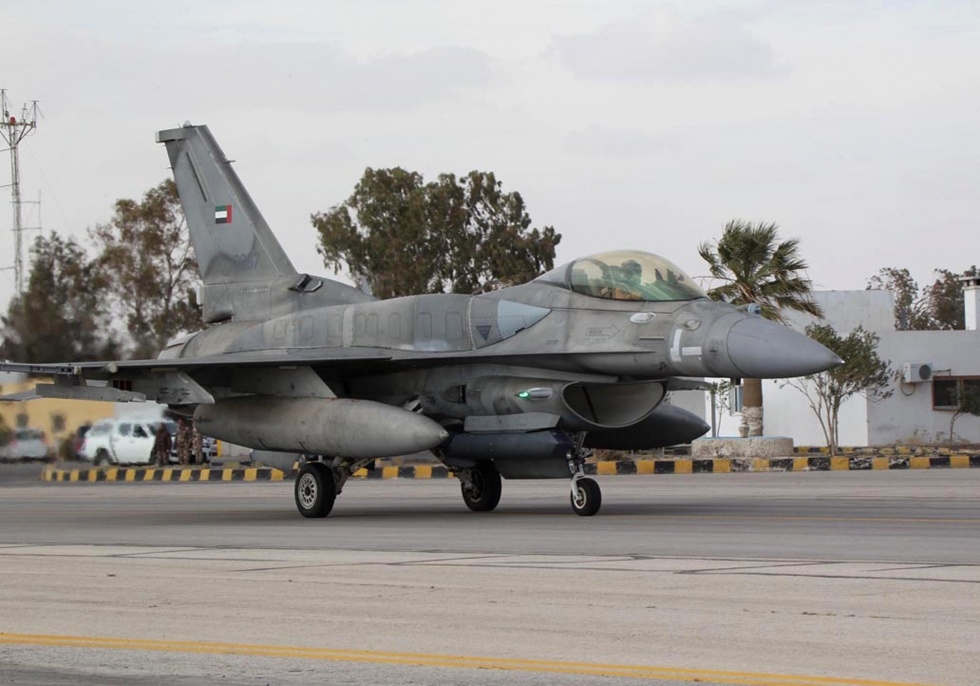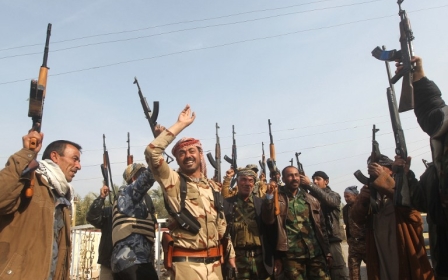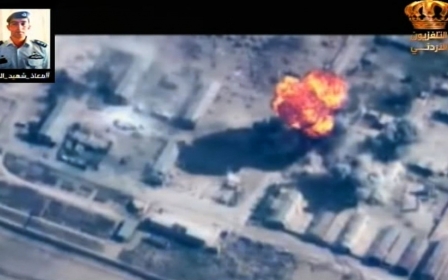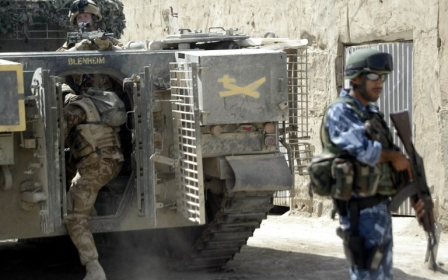UAE resumes coalition air strikes for the first time since December

Six weeks after the United Arab Emirates suspended its action in the US-led coalition strikes against the Islamic State in Iraq and Syria, the Gulf country has declared that it has resumed air strikes.
“Aircraft of the F-16 squadron based in Jordan launched raids this morning against positions of the Islamic State terrorist organisation, hitting their targets and returning safely to base,” the UAE armed forces command said in a statement.
No further information was provided regarding the exact location of the strikes or the number of casualties inflicted.
The UAE halted its role in the coalition following the capture of Jordanian pilot Muath al-Kasasba on 22 December 2014. The pilot was burned alive by the Islamic State, who had circulated a video of the execution last month.
The news about UAE's suspension first broke shortly after Kasasba's death. At the time, the UAE justified the suspension by saying that the United States Central Command had not made use of adequate resources to rescue downed pilots, especially in the north of Iraq. Once they found out the rescue mission aircrafts were located further south in Kuwait, the UAE said they will refuse to fly their pilots until a faster and effective search and rescue system was straightaway put in place.
According to the New York Times, the UAE specifically requested the United States to place the deployment of V-22 Osprey tilt-rotor aircraft in northern Iraq with immediate effect, or risk losing UAE aerial support. But on Sunday, the UAE deployed an F-16 squadron in Jordan as a show of support and solidarity with Jordan, before announcing on Tuesday that it had resumed military operations against IS.
“The suspension of combat operations was made for purely operational and planning reasons, not political ones,” the Emirates’ ambassador to the United States Yousef al-Otaiba told media. “Once these concerns were addressed, combat operations resumed.”
Jordan has now vowed an “earth-shattering” response to the burning of its pilot and escalated their air strikes, with Otaiba stating that his country was “fully committed” to overpowering the IS organisation “and will not back down”.
The US-led coalition’s operation, which began in August 2014, includes a number of Arab and Western countries that are committed to fight against IS in territories it has managed to capture. However, critics of the coalition’s operation have condemned the operation as another “American war” that is contributing little in the fight against President Bashar al-Assad’s government in Syria, in addition to the coalition’s ineffectiveness in stopping IS.
In an interview with the BBC broadcasted on Tuesday, President Bashar al-Assad revealed that although there was no direct dialogue between his government and the coalition, he nevertheless receives information about their strikes from third parties.
“There’s no direct cooperation,” he said. “Sometimes they convey a message, a general message. This is no dialogue. There’s, let’s say, information, but not dialogue.”
While Assad believes the coalition strikes have the potential to help his government, he maintains that it will not be enough unless the international community begins cooperation with the Syrian troops on the ground. Washington meanwhile insists its ultimate aim remains the overthrow of Assad’s government.
New MEE newsletter: Jerusalem Dispatch
Sign up to get the latest insights and analysis on Israel-Palestine, alongside Turkey Unpacked and other MEE newsletters
Middle East Eye delivers independent and unrivalled coverage and analysis of the Middle East, North Africa and beyond. To learn more about republishing this content and the associated fees, please fill out this form. More about MEE can be found here.




